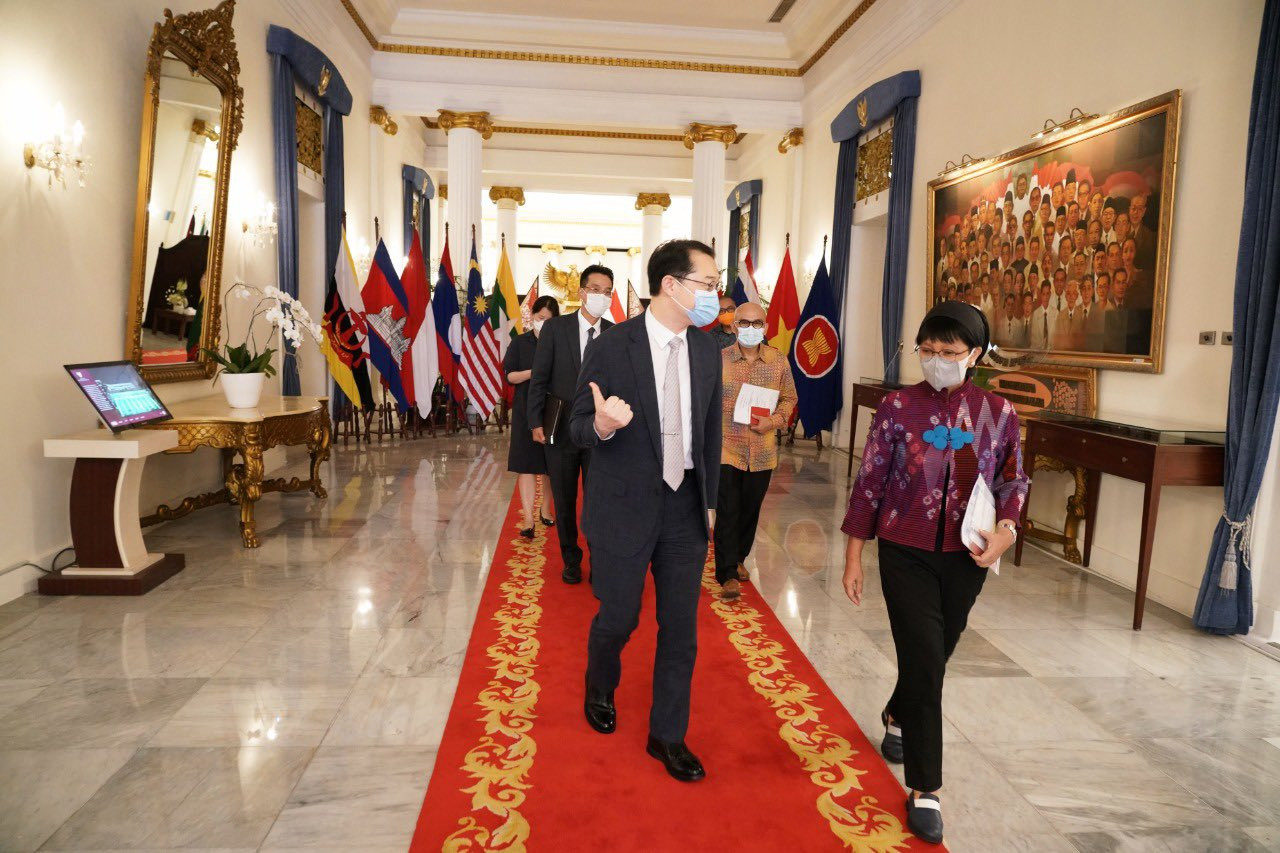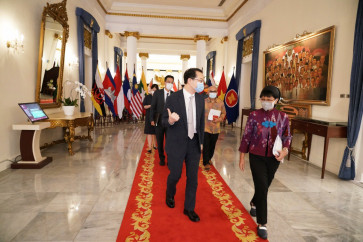Popular Reads
Top Results
Can't find what you're looking for?
View all search resultsPopular Reads
Top Results
Can't find what you're looking for?
View all search results‘With robotics and AI, cheap workforce will no longer be needed’: Ambassador
The most important way to support Indonesia’s economic recovery post-COVID-19 is through research and development and human resource development.
Change text size
Gift Premium Articles
to Anyone
T
he partnership between Indonesia and South Korea has lasted for decades in various fields, particularly with regard to the economy. Outgoing Indonesian ambassador to South Korea Umar Hadi spoke with The Jakarta Post’s Kornelius Purba about South Korea’s economic trends and how Indonesia should prepare for future developments. The following are excerpts from the discussion.
Question: How has the COVID-19 pandemic changed South Korea’s economy?
Answer: The pandemic has made the world unstable and has made old conflicts resurface. The fast-changing nature of the pandemic makes reliable predictions more difficult. Surrounded by uncertainty, along with disruption, the pressure is getting stronger. Thus, we are living in an unstable world, embracing the age of chaos.
Emerging markets are adopting new technologies and renewable energy. Companies are trying to shrink supply chains and gradually change traditional manufacturing and industrial practices into the use of modern and smart technology. There is also a dire need for the utilization of big data and artificial intelligence (AI), as well as data accessibility through remote working.
The world has changed. If we don't change, we will be left behind. South Korea has adapted to this situation by announcing the Korean New Deal: National Strategy for a Great Transformation on July 14, 2020. This strategy plans to invest 160 trillion won [Rp 1.96 quadrillion] to create 1,901,000 jobs by 2025 based on two main policies – the Digital New Deal and the Green New Deal – and an overarching policy support to strengthen employment and the social safety net.
How should Indonesia respond to the use of AI in industry?
AI is growing very rapidly in the US, China, Israel and South Korea. Recently it has reached a tipping point in every sector, including health care and industry. In the future, with system automation and AI, there will be no more development of the manufacturing industry. For example, during the production of masks, all the processes are carried out by robots. The Hyundai factory, which was built in Jakarta, also uses robots for its manufacturing process.


















